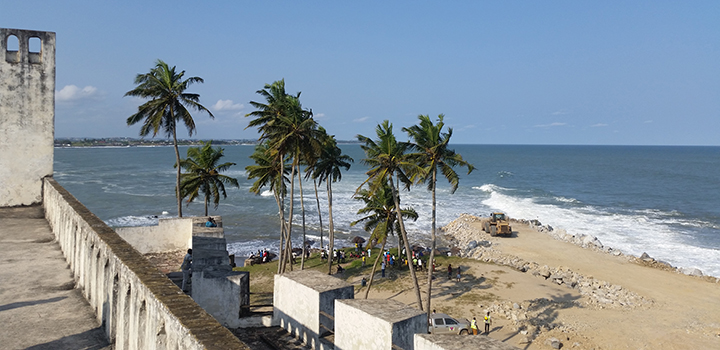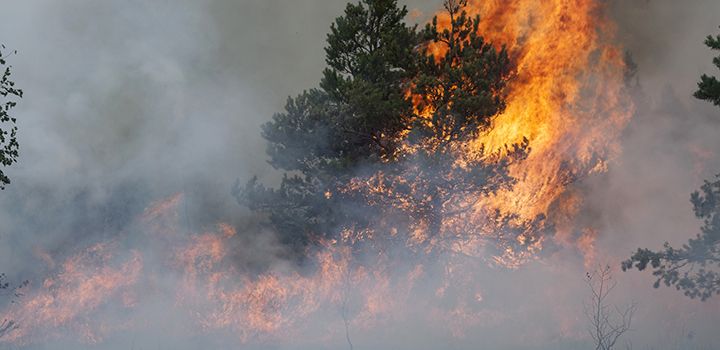Measuring impacts of climate change on heritage to be explored at conference
By: Communications

Issues around the loss of coastal heritage due to climate change and how these can be effectively addressed in policy will be discussed during a major conference taking place at the University of East Anglia (UEA) next week.
The conference will discuss a range of pressing issues including how behavioural science can inform choices about what should be saved and how archaeological landscapes are valued, to the human cost of heritage loss and the role art and exhibitions play in addressing ecological crisis.
Heritage takes many forms, and includes physical artifacts, buildings and ecosystems, but also the rich cultural and social aspects of people’s lives that are passed down the generations.
Despite the growing realisation that heritage losses due to climate change will be significant in coming decades, current global policies rarely include heritage in their assessments. For example, heritage is hardly mentioned in the UN’s Sustainable Development Goals or routinely included in the Intergovernmental Panel on Climate Change (IPCC) assessments or special reports.
The conference on Thursday March 30 brings together international scholars and policy experts in heritage and climate change to explore how to measure the human cost of Loss and Damage to coastal heritage from climate change related sea-level rise and coastal erosion.
Funded by The British Academy as part of their flagship Conferences series, and organised in partnership with ClimateUEA, the aim is to better align humanities-social science heritage scholarship with science-based climate change scholarship and, ultimately, allow heritage to be integrated into climate change policy assessments.
Prof Joanne Clarke, of UEA’s School of Art, Media and American Studies, is Principal Investigator on the conference and has conducted research on societal responses to climate change in the past and climate change impacts on heritage in Africa. She was a contributing author to the Africa Chapter of the Working Group II contribution to the IPCC’s Sixth Assessment Report.
“We are excited to host this timely conference,” said Prof Clarke. “There is increasing recognition that archaeology and heritage have more to offer climate change policy than has been considered to date.
“However, due to disciplinary differences in methodologies and how data and evidence are expressed and communicated, heritage is not routinely or evenly incorporated in climate change assessment reports.”
Dr Hana Morel of the Museum of London Archaeology (MOLA) and Scientific Coordinator of the International Council on Monuments and Sites (ICOMOS) project, which is lobbying for heritage to be included in climate change policy reporting, said “With Loss and Damage being the breakthrough issue of COP27, the opportunities for heritage are substantial.
“This conference has the potential to inform and establish a position from the social sciences and humanities for the 2023 Glasgow Dialogue and forthcoming Loss and Damage workshops by the United Nations Framework Convention on Climate Change, building towards COP28.”
The conference will include sessions on how climate change is affecting different coastlines, such as those in Ghana, West Africa, and in East Anglia in the UK. Prof Anne Haour, director of UEA’s Centre for African Art and Archaeology, said: “Hosting the conference at UEA is particularly fitting given the research strengths of the university around both climate change and heritage.
“This will give us the opportunity to explore common experiences and challenges across different parts of the world, including the West African coastline, the Caribbean and the Indian Ocean, where speakers – both from UEA, and beyond – have conducted ground-breaking research.”
For many decades UEA has played a pivotal role in researching the environmental and social impacts of changing climate on its regional coastline. Dr Johanna Forster, Associate Professor in Environment and International Development and Associate Pro-Vice-Chancellor (Civic), added: “We are in a unique position, as a civic institution founded by and for the region, but with global impact; this conference showcases and demonstrates the UEA’s commitment to understanding local and global needs.
“The impacts to our regional coastline are front and centre in debates around adapting to climate change, and the inclusion of heritage in these discussions is of paramount importance. The conference will contribute towards this goal.”
The conference - ‘Measuring Heritage Loss and Damage from Climate Change for Effective Policy Reporting’ - features speakers from the Schools of International Development, Economics, and Art, Media and American Studies, and the Tyndall Centre for Climate Change Research at UEA, as well as the University of Ghana, Columbia University, the Climate Change Heritage Network UK, Loughborough University London, University of Southampton and GroundWork Gallery.
Speaker and programme details are available via this link.
Related Articles

Review of wildfire activity in 2023 reveals where record area burned
An overview of global wildfire activity and impacts for last year reveals the parts of the world that saw a record amount of area burned.
Read more
Lightning identified as the leading cause of wildfires in boreal forests, threatening carbon storage
Lightning is the dominant cause of wildfire ignition in boreal forests – areas of global importance for carbon storage – and will increase in frequency with climate change, according to new research.
Read more